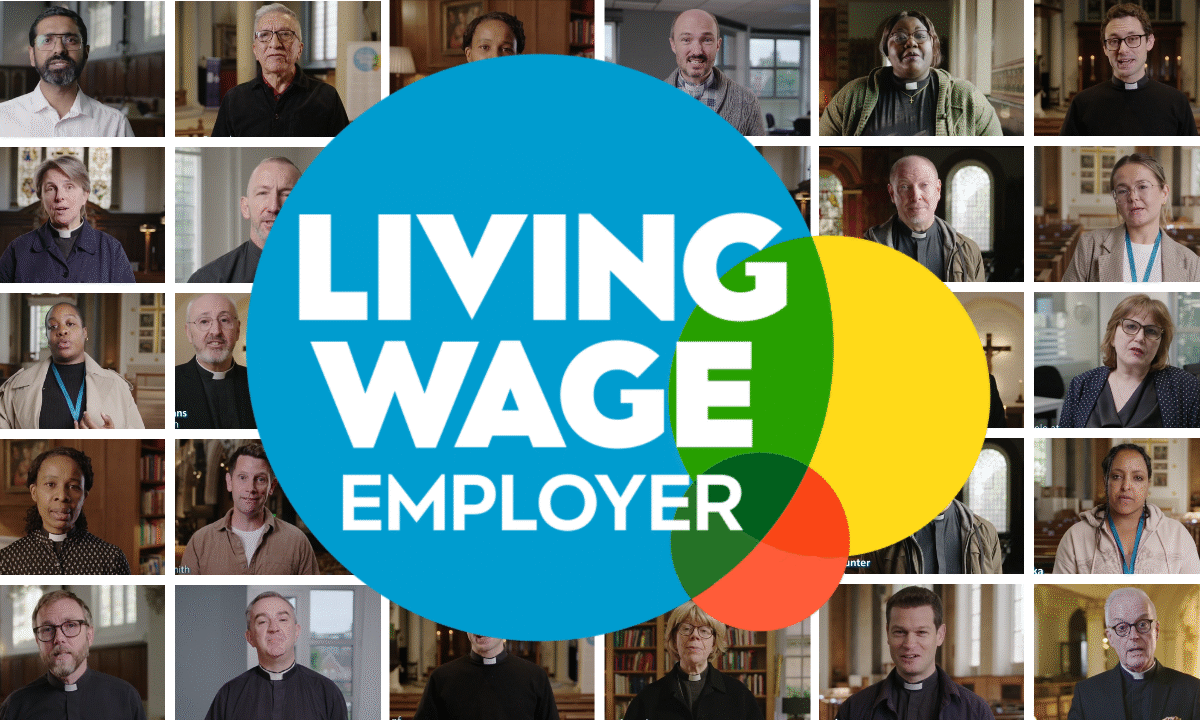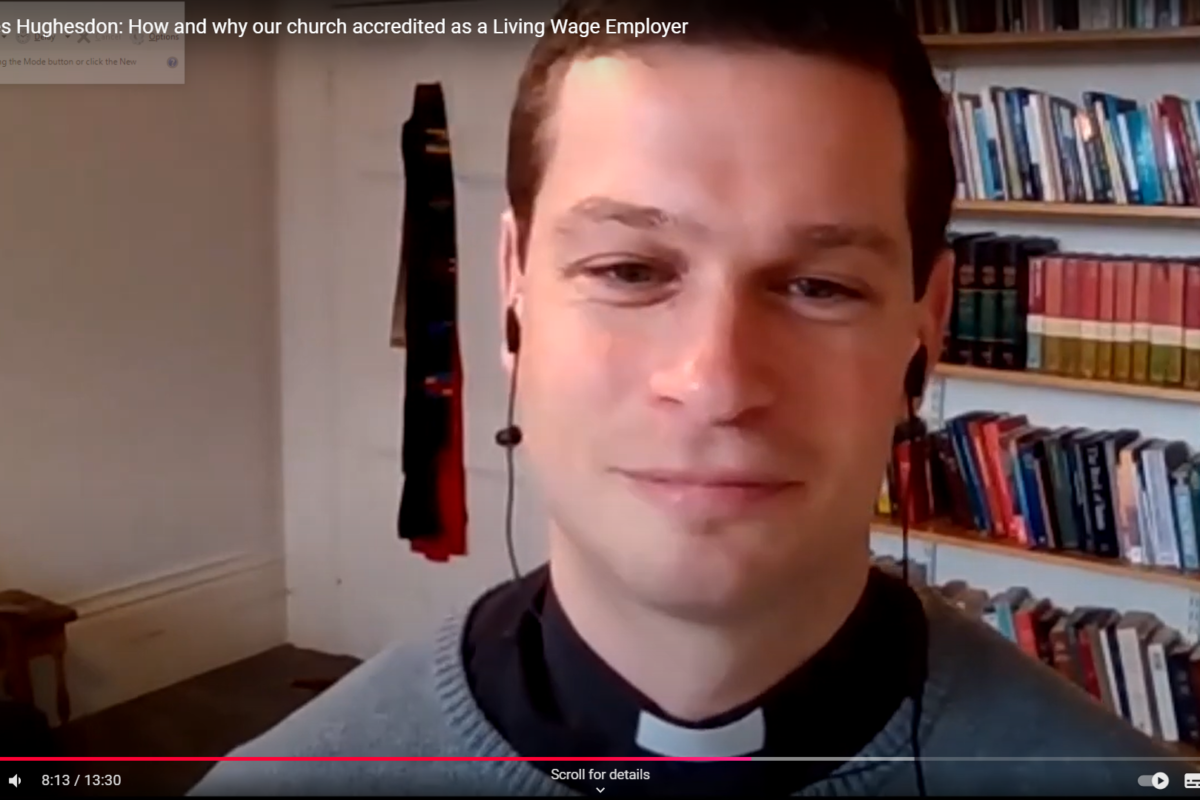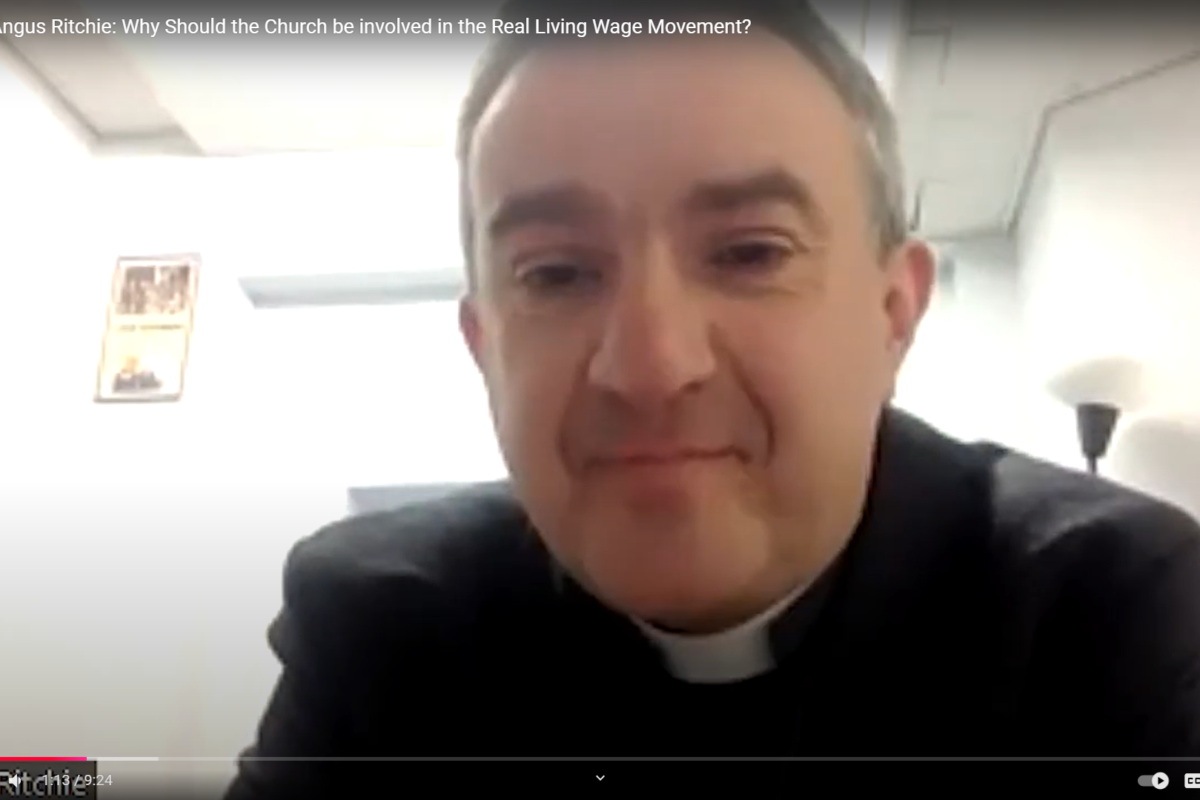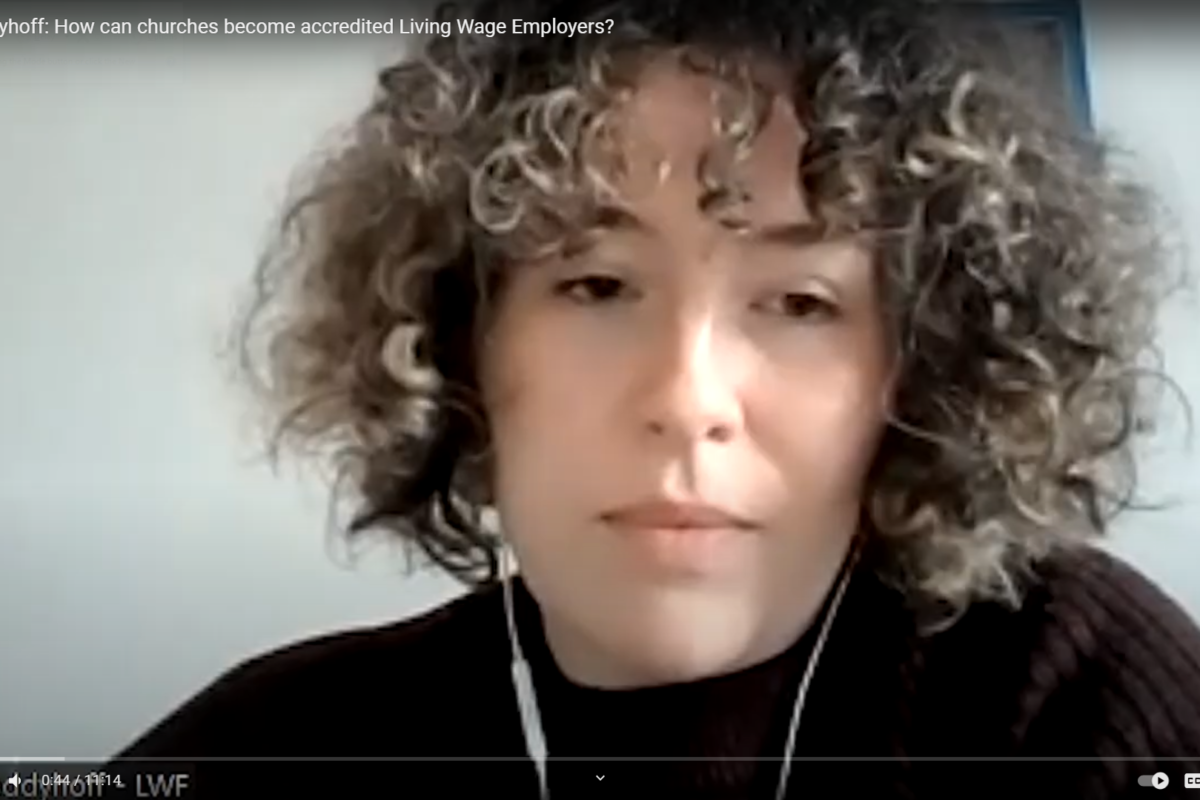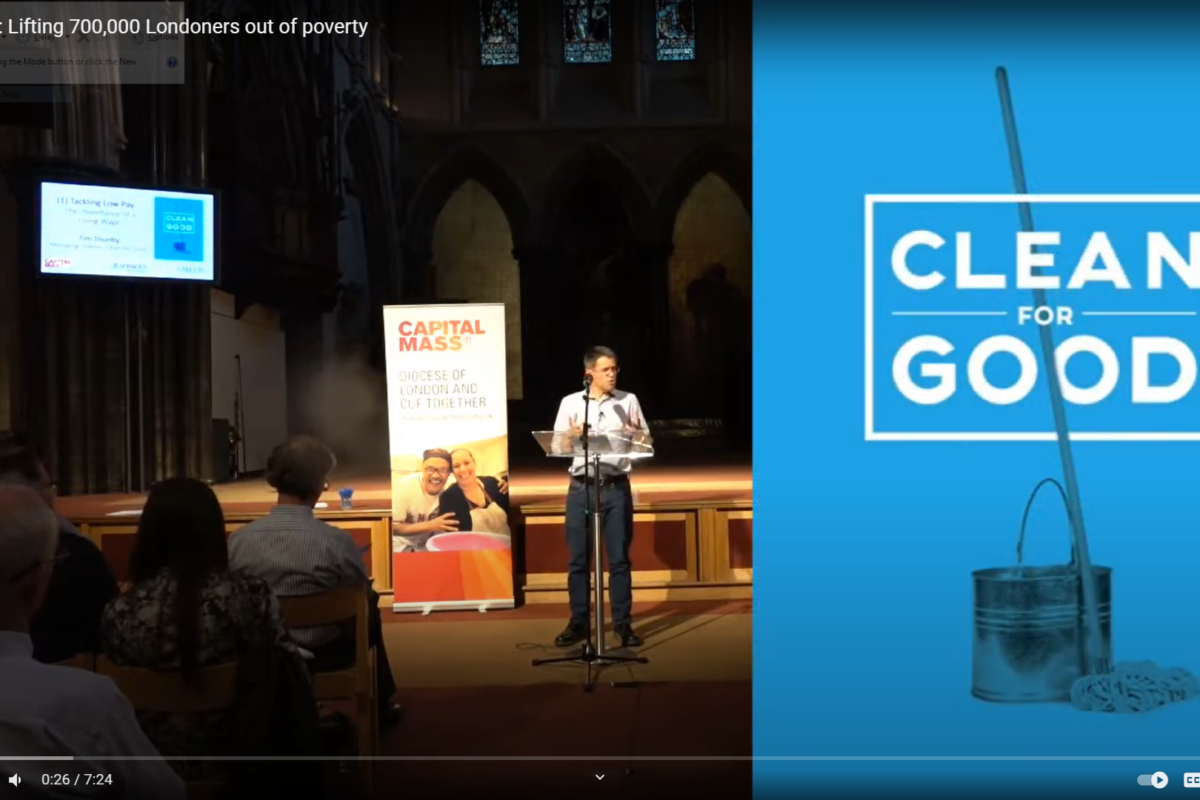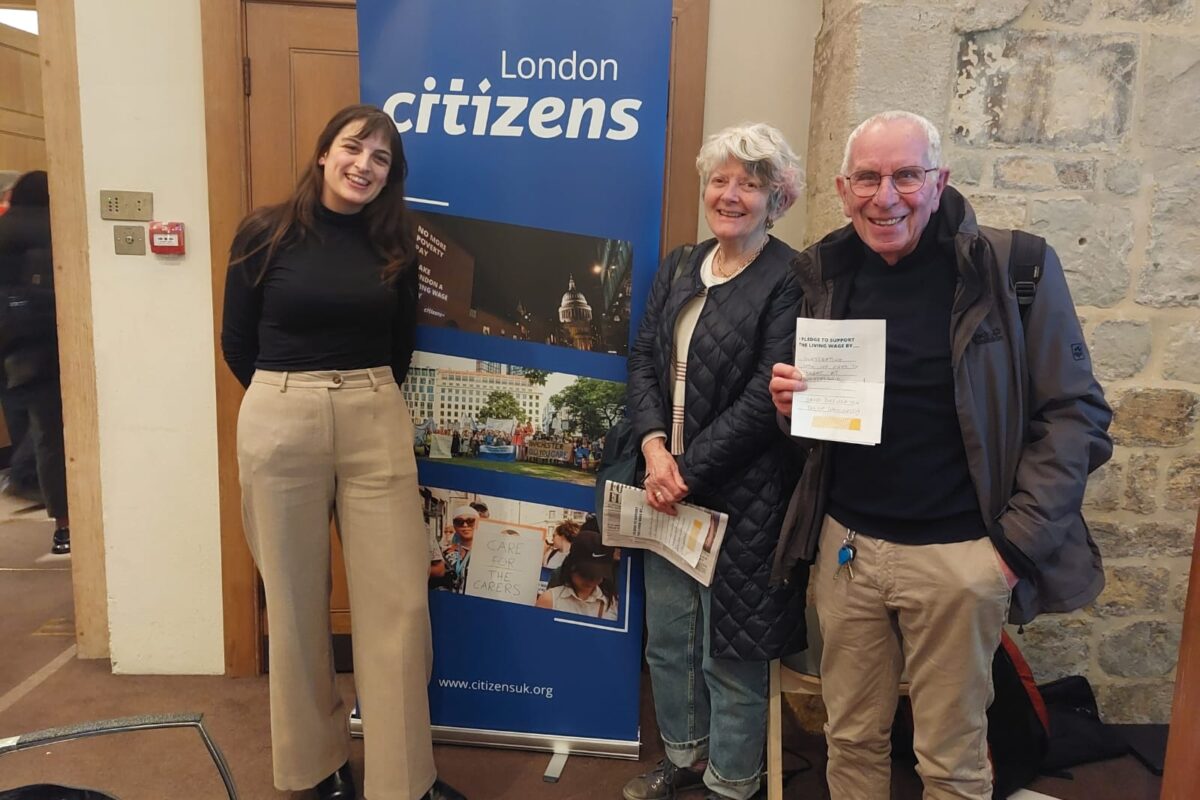What is the real Living Wage?
The real Living Wage, set by the Living Wage Foundation, remains the only wage rate independently calculated based on the actual costs of living. These figures are calculated annually by the Resolution Foundation and overseen by the Living Wage Commission, based on research by Loughborough University into the Minimum Income Standard for the UK and London.
What’s the difference between the ‘Minimum Wage,’ the ‘National Living Wage,’ and the ‘Real Living Wage’?
This explainer from the Living Wage Foundation outlines the difference between these often confused terms.
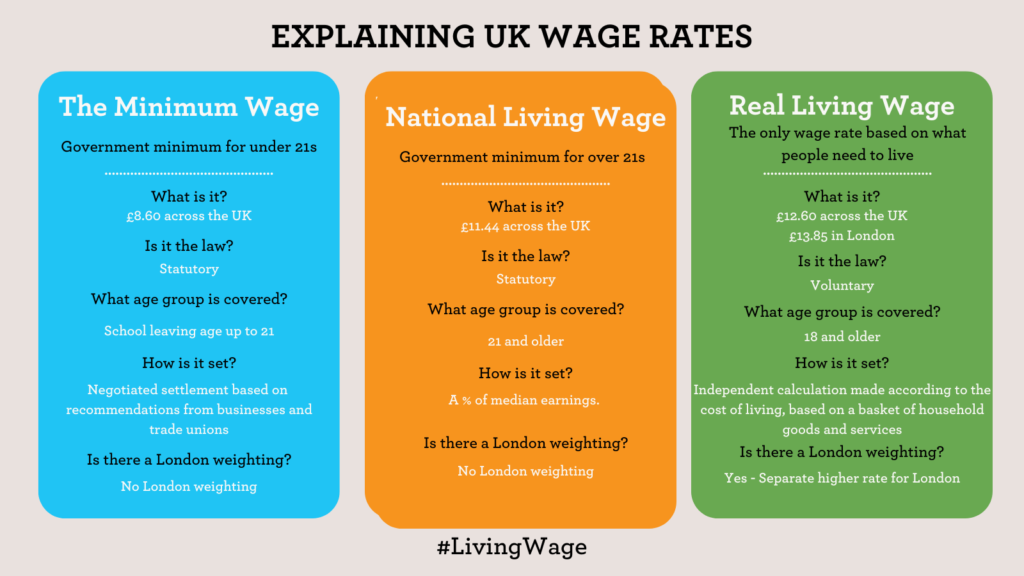
The real Living Wage is a voluntary standard that employers can choose adopt, in order to ensure their workers have a wage which meets everyday needs.
- In 2001, The Living Wage movement started in East London.
- In 2011, The Living Wage Foundation was established, encouraging employers to pay what they call the real ‘Living Wage’, or the ‘London Living Wage’ if inside London.
- In 2015, the Government retitled what was previously known as the Minimum Wage as the ‘National Living Wage’ for over 21 year olds (it continues to be called the Minimum Wage for 18-21s and is paid at a lower rate).
How much is the real Living Wage currently?
The Living Wage Foundation announced the new rates for 2025/2026 in October 2025.
UK Living Wage: £13.45 per hour
London Living Wage: £14.80 per hour
Accredited employers are asked to update staff wages as soon as possible and no later than May 2026.
Why should our church consider accrediting as a Living Wage Employer?
There are many reasons for churches to become Living Wage accredited.
It is part of our worship and our witness, as we seek to work out the Five Marks of Mission.
As churches we often offer many practical ministries for those on low income such as foodbanks, clothes banks and meals; paying the Living Wage helps us to also tackle the injustice of low pay.
It acts both as a a public commitment to work against socially unjust structures that see individuals paid less than the amount they need to survive, and it sends a message of solidarity to low-paid people in our churches and communities that they are valued.
For more on this, please see the resources below including our Living Wage Toolkit, stories and video conversations, which will also help you and your church consider how to accredit.
How can my church accredit as a Living Wage Employer?
For small organisations like churches, accrediting is a straight-forward process, which will typically be completed in less than a month.
- Fill in the accreditation enquiry form on the Living Wage Foundation’s website
- Confirm to the Foundation that directly employed staff are being paid the current Living Wage rates
- Have a plan in place to extend the Living Wage to include any third-party staff (the Foundation can advise on this)
- Check your PCC is happy with the terms of the Licence Agreement and content to pay the annual accreditation fee
- Sign the Licence Agreement, which sets out your commitments as a Living Wage Employer
More information about accrediting can be found on the Living Wage Foundation website and in our Living Wage toolkit below.

How can my church think theologically about the Living Wage?
There are various resources available to help churches think theologically about the Living Wage.
- Pages 6 – 8 of this Living Wage Week toolkit, produced by the Centre for Theology and Community with Citizens UK, offer relevant reflections from different Christian traditions.
- A paper by the Jubilee Centre’s Matt Williams talks about the Living Wage as part of a Christian response to in-work poverty.
- Church Action on Poverty’s Living Wage briefing for churches lays out the stated positions of different UK church denominations.
- St Katherine Cree in the City hosts an annual service of prayer and worship during Living Wage Week. The Joseph Centre for Dignified Work, which is housed within St Katherine’s, periodically also shares relevant resources.
- Canon Dr Angus Ritchie, Executive Director at the Centre for Theology and Community, has previously recorded a Living Wage reflection with the Compassionate Communities Team, which can be viewed in the video library below.
Resources & Reading
Trainings & Conversations (scroll right for more)
Downloadable Resources
News Stories
Skip To Sub Navigation

